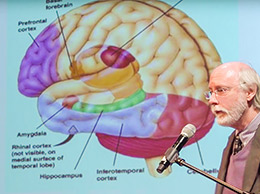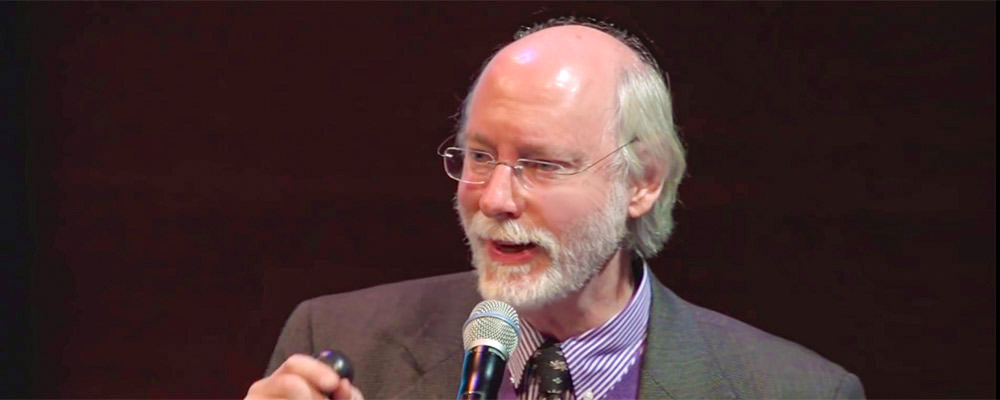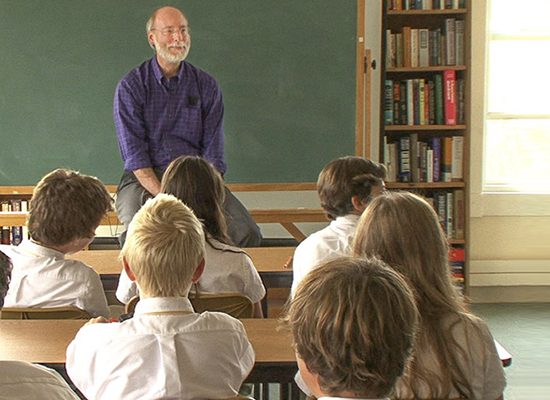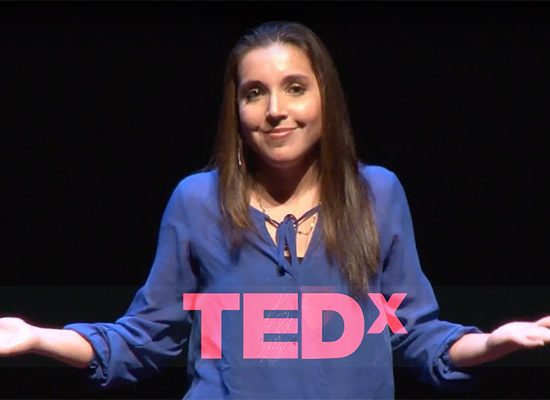Chronic sleep deprivation, intense academic pressure, mind-numbing and mind-scattering effects of 24/7 screen time—teens and young adults experience epic amounts of stress, and it’s affecting their minds and bodies to an historic degree. Compared to young people during the Great Depression, World War II, or the Cold War, today’s youth are 5-8 times more likely to report being anxious or depressed.
“Adolescent brains desperately need meditation,” says leading clinical neuropsychologist Dr. William Stixrud. “TM can prevent and reduce the kinds of problems that are so absurdly prevalent in young people these days,” he explained at a David Lynch Foundation conference, “Meditation and the Brain,” at the Rubin Museum of Art in New York.
What Makes the Teen Brain Tick
With humor and science, Dr. Stixrud unlocks the secrets of the adolescent brain, which operates very differently from the adult brain. For starters, the “prefrontal cortex is very slow to mature”—executive and cognitive functions aren’t mature until 25 or so, and emotional regulation isn’t fully functional until around 32!

Dr. William Stixrud explains the brain to a full house at the Rubin Museum of Art
This means a young adult’s amygdala—the brain’s “threat detection system”—is more in charge than the calming, regulating prefrontal cortex. The result? Stress has an even greater impact, due to greater sensitivity to fear and anger.
“So much of the transition between being a kid and being an adult is this unfolding of the prefrontal cortex,” says Dr. Stixrud. But young people today are so stressed, he’s deeply concerned “they may not be developing a healthy prefrontal cortex.”
Is there a way to protect the adolescent brain from stress and tame the amygdala?
“So much of the transition between being a kid and being an adult is this unfolding of the prefrontal cortex,” says Dr. Stixrud. But young people today are so stressed, he’s deeply concerned “they may not be developing a healthy prefrontal cortex.”
The Brain-Organizing Power of TM
“When young people meditate, it works,” reports Dr. Stixrud. The Transcendental Meditation® (TM) technique works for the teenage brain just as it does for the adult brain. “From studies of middle-school and college students, you see these changes in the electrical activity of the brain that allow for better concentration. When you are less stressed, you can focus better, you can resist distraction better. And when you have this increased coherence in brain function, you can organize your thinking better because your sense of priorities is better. You can integrate information better, and see with a larger perspective.”
Judging from the evidence, TM helps the prefrontal cortex come online. “There is a lot of evidence now that TM helps improve executive functions,” Dr. Stixrud explains. “In my field, executive functions—which include planning, organization, the ability to inhibit and be flexible—are considered much better predictors of how well you do in life than IQ. This is a big deal. The fact of organizing the brain, and this experience of transcendence and improving the way the brain functions, is really a big deal from a learning point of view.”
“There is a lot of evidence now that TM helps improve executive functions… In my field, executive functions—which include planning, organization, the ability to inhibit and be flexible—are considered much better predictors of how well you do in life than IQ.”
How to Unplug, De-stress, and Reconnect
At a time when scientists are calling for more “unplugged downtime” so kids can “de-stress” and connect with themselves, and teachers are looking for antidotes to the non-stop use of technology, the TM technique offers a simple, easy, natural way for young people to get rid of stress and organize their brains.
Since it’s so rewarding for teens to be with each other, Dr. Stixrud is “focusing on ways to get teens in schools to meditate together—develop meditation clubs, have meditation buddies, have schools develop study halls where kids can meditate—because teenagers typically don’t want to do stuff that others kids aren’t doing.”
Dr. Stixrud, who has dedicated his life to assessing and helping teens and young adults, concludes, “It seems to me, given what we know about what TM can do to improve the lives of young people, I think it’s cruel not to teach it to them. At least give them a chance to do it.”
“It seems to me, given what we know about what TM can do to improve the lives of young people, I think it’s cruel not to teach it to them. At least give them a chance to do it.”
Dr. William Stixrud is a leading clinical neuropsychologist and director of The Stixrud Group, a Washington, D.C. organization specializing in neuropsychological assessment of children, adolescents, and adults with learning, attention, social, and emotional disorders. Dr. Stixrud is a frequent lecturer on the subjects of neuropsychological assessment, learning and executive disorders, brain development, motivation, and the effect of TM on stress, sleep deprivation, and technology overload on the brain.
Watch Dr. Stixrud’s talk here ►






Thanks for the TM News and Video. I appreciate knowing Dr. Stixrud’s findings regarding executive and cognitive functioning and emotional maturity.
Glad you enjoyed, John. We hope to continue bringing out informative and encouraging findings like these.
Thank you for the link to Dr. Stixrud’s address at the Rubin Centre NYC. It is quite an art to communicate in plain English the science of brain/stress/neurochemicals etc. in a way that is straightforward and can be grasped immediately with understanding. This video deserves to go viral. Many thanks, Faye
Thanks, Faye. You put it so well about Dr. Stixrud’s ability to convey complex science. We hope it goes viral too : )
Just wondering if there is research on the effects of TM on slow processing. I am an educator, and the general feeling is that there are no solutions for slow processing. As a long-term practitioner of TM, it seems to clear to me that it would improve processing speed. Any research?
Hi Patricia, Thanks for your query. I’d like to know about this as well. I’ll check and see what I can find.
Good news. There have been at least 3 studies on this. I’ll send pdf copies to you by email.
Dr. Fred Travis, director of the Center for Brain, Consciousness and Cognition at Maharishi University of Management, responded and suggested two:
“Great question. Slow processing represents how the brain is being sculpted in the first 20 years of life. Everyone goes through this–meditating or not. TM helps to smooth that transition. (Papers attached.) But it happens to everyone. Be sure the child has good sleep, exercise, diet, and a space to grow, along with daily transcending, and they will mature into the great person that they are.”
Dixon, C et al, “Accelerating Cognitive and Self-Development: Longitudinal Studies with Preschool and Elementary School Children,” Journal of Social Behavior and Personality, 2003, 65-91.
Alexander, CN et al, “Effect of Practice Maharishi Word of Wisdom Technique on Children’s Cognitive Stage Development: Acquisition and Consolidation of Conservation,” Journal of Social Behavior and Personality, 2003, Vol. 16, No. 5, 21–46.
And Dr. Alarik Arenander, director of the Brain Research Institute (http://www.brainresearchinstitute.org) referenced this study:
So, K-T, and Orme-Johnson, DW, “Three randomized experiments on the longitudinal effects of the Transcendental Meditation technique on cognition,” Intelligence 29 (2001): 419-440.